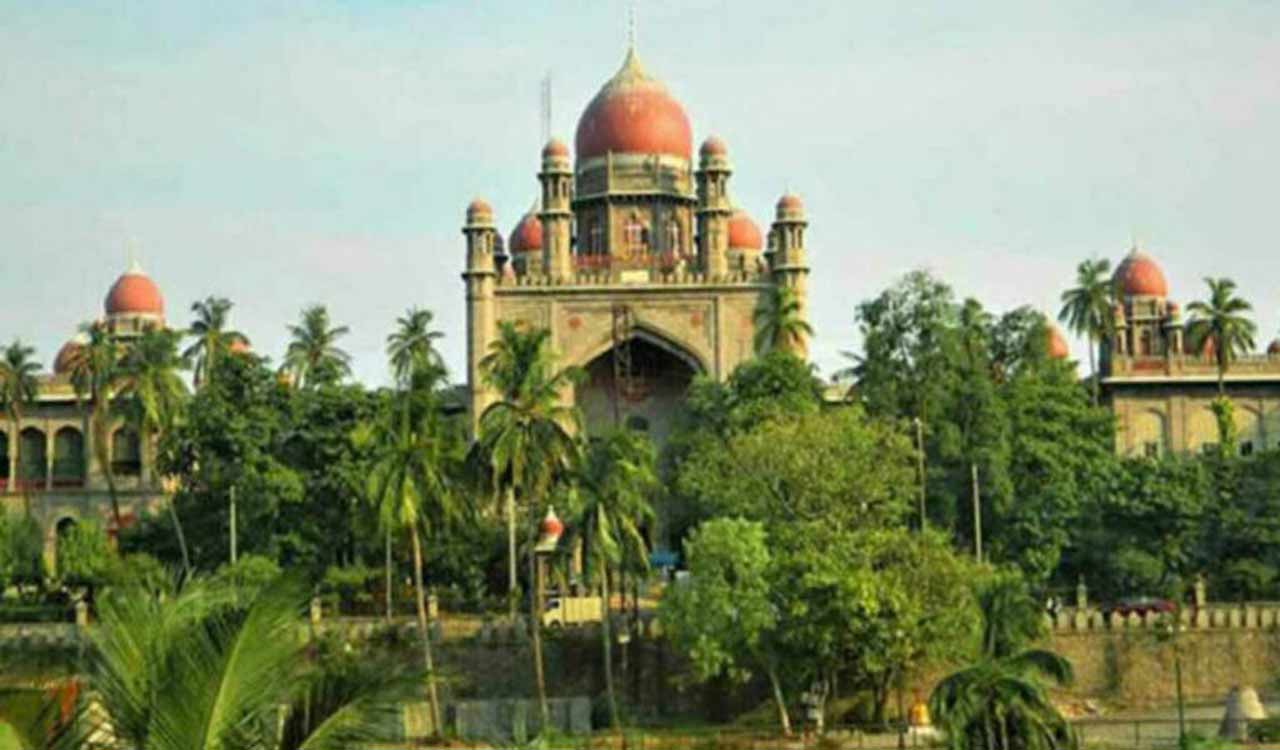The Telangana High Court has intensified scrutiny over alleged illegal constructions on Bhoodan and government-owned grazing land in Hyderabad’s peripheral zone, demanding accountability from local authorities and reaffirming the legal sanctity of public land. The judicial intervention comes amid growing concerns over the misuse of land earmarked for the landless and the marginalised.
Acting on a contempt petition filed by a civic petitioner, the court has directed the Rangareddy district administration to submit a detailed status report on the unauthorised development reportedly underway in Nagaram village, situated in Maheshwaram mandal. This follows an earlier court order that had categorically instructed state agencies to maintain status quo on the disputed plots and place them under a restricted category to prevent any kind of sale, transfer, or modification. In a significant move, the bench headed by a senior judge issued directions for a compliance report to be filed by July 11, calling for an explanation on how construction activities were allowed to proceed despite judicial directives being in force. The court’s directive signals a stern stance on contempt of court and the potential complicity or negligence of administrative machinery in allowing encroachments to fester.
At the heart of the controversy are land parcels in survey numbers 181, 182, 194, and 195 in Nagaram village. These lands are designated either as Bhoodan—plots donated voluntarily during post-Independence land reforms to support equitable redistribution—or Gairan Sarkari, which are government-owned grazing lands meant to remain as community assets. Both categories of land are protected under state and central land use frameworks and cannot be sold, transferred, or developed without due legal sanction. The petitioner, a long-time whistleblower on irregular land dealings in the region, presented photographic evidence to the court showing a compound wall being constructed around one such parcel. According to his statement, despite multiple warnings and an existing court order, construction work continued at pace—raising suspicions of collusion between private developers and officials with administrative authority over the area.
The issue touches on a broader public concern: the gradual erosion of common land for private interests, often under the pretext of development. Experts familiar with land governance in Telangana note that Bhoodan and grazing lands have increasingly become targets for speculative activity, especially in zones close to urban expansion corridors like those around Hyderabad. With land prices rising rapidly, especially in Rangareddy district, these properties offer lucrative returns to those willing to bypass legal norms. The case also underscores systemic failures in enforcement. Despite the April 24 directive by the court to list the Bhoodan and Gairan Sarkari lands as ‘prohibited’ for any form of alienation or modification, the on-ground scenario appears unchanged. The petitioner claimed that no visible efforts had been made by the revenue or planning departments to halt the unauthorised developments or take corrective action.
According to legal experts, Bhoodan lands come with a unique legal status—originally allocated to landless individuals or marginalised communities, they are intended to remain within that socio-economic framework. The same principle applies to grazing lands, which serve ecological and livelihood functions, particularly in semi-urban and rural settings. Public policy researchers argue that overlooking the legal boundaries of such land use categories not only violates court orders but also undermines the intent of constitutional and social justice frameworks that prioritise equity, community welfare, and ecological balance.
Officials from the district administration are now under pressure to provide clarity on whether due diligence was exercised in preventing illegal constructions and what measures are being initiated to restore the integrity of these lands. The court has indicated that failure to comply with its directions may attract further legal consequences, including contempt proceedings. Urban development watchers in Hyderabad believe this case could set a precedent for how grazing lands and redistributed plots are treated under expanding city jurisdictions. With Hyderabad’s footprint extending rapidly, many semi-rural villages are being absorbed into larger development zones, sometimes leading to a blurring of legal definitions and land ownership patterns.
Advocates for sustainable development have called for digitisation of land records, real-time tracking of land use changes, and strict monitoring by independent bodies to prevent such encroachments. They point out that once these lands are built over, restoration becomes legally and practically difficult—compounding the problem for future generations. While the court’s order has revived public discourse on land equity and transparency, the challenge remains one of implementation. Without proactive action from district and state-level authorities, judicial pronouncements risk becoming paper mandates with limited effect on the ground.
The coming weeks are crucial for the Rangareddy district administration, which must now file a comprehensive report on the current status of the land in question, explain the steps taken since the previous court order, and detail the names of any parties involved in potential violations. Citizens’ groups have also urged the state government to undertake a wider audit of Bhoodan and grazing lands to ensure compliance across districts, not just in Nagaram. The episode shines a light on the growing tension between unregulated urban expansion and the protection of common and reform-driven land. As Telangana navigates the complexities of development and equitable resource distribution, the fate of these Bhoodan lands may well become a litmus test for the state’s commitment to legal integrity and sustainable urbanisation.
Also Read : Pune IMD Issues Red Alert for Extreme Rain in Ghats


